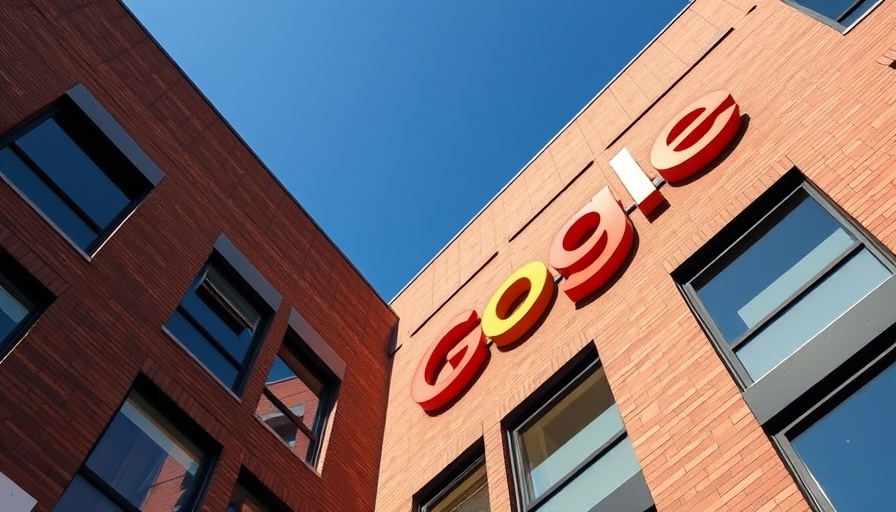
Google and Scale AI: A Shifting Partnership
In the dynamic world of digital marketing, alliances and partnerships can often dictate the flow of innovation and market trends. Recently, reports have emerged that Google is considering cutting ties with Scale AI, a leading provider of data labeling and AI training datasets. This potential move raises questions about the future of AI integration in digital marketing and the implications for businesses that rely on these tools.
Understanding AI's Role in Digital Marketing
AI technology has rapidly transformed how brands operate, enabling advanced analytics, personalized marketing, and improved customer engagements. As a business owner or marketer, grasping the changing landscape of AI technology is essential. Google’s association with Scale AI has been pivotal in their development of machine learning models that power services such as Google Ads and Google Analytics. The loss of this partnership could mean a shift in the quality and efficiency of the tools that many businesses utilize every day.
The Importance of Data-Driven Marketing
Data is the backbone of effective marketing strategies. As Google reviews its relationship with Scale AI, the emphasis on data collection methods becomes increasingly crucial. If you are a marketer, you need to stay updated on how these changes can affect insights derived from data, potentially impacting your campaigns. Implementing solid analytics and reporting mechanisms can help navigate these shifts better.
Maximizing SEO and Content Strategies Post-Change
The potential shift away from Scale AI means that marketers may need to adapt their SEO and content marketing strategies. Google’s algorithms heavily rely on AI to determine content ranking. Therefore, understanding how such changes might impact keyword strategies and content distribution is vital. Ensure your content is optimized for user experience and aligned with the latest trends in search engine algorithm updates.
Preparing for Ongoing Changes in Digital Marketing
The digital marketing landscape is ever-evolving, making it critical to employ flexible strategies that can adjust to ongoing changes. As Google navigates its possible disassociation with Scale AI, businesses should enhance their technical SEO best practices and continue focusing on conversion rate optimization. Being proactive rather than reactive will allow marketers to maintain middle-ground stability in community engagement and overall brand awareness.
Essential Marketing Tools for Future Success
As reliance on traditional partnerships shifts, embracing a toolkit of robust marketing technologies becomes increasingly significant. Explore marketing automation tools that can help streamline processes, analytics tools for real-time insights, and customer journey mapping to optimize consumer experiences. Understanding resources available for marketing performance measurement, including metrics to assess marketing ROI, will be necessary as partnerships in technology evolve.
The Digital Marketing Trends to Watch
As businesses watch this partnership unfold, staying informed on broader trends is crucial. Key trends to observe in 2025 include a surge in AI in digital marketing, personalization strategies, and the growth of omnichannel marketing. These trends not only reflect changes in consumer behavior but also dictate how businesses can effectively allocate their marketing budgets.
Conclusion: Embrace Flexibility and Stay Informed
As Google potentially shifts its partnership with Scale AI, the move emphasizes the need for businesses to remain agile and well-informed within the digital marketing landscape. Staying attuned to SEO updates, understanding content marketing strategies, and utilizing the right digital marketing tools are essential ways to ensure that your business not only survives but thrives amidst change. Don’t wait for updates to affect your marketing efforts; actively shape your strategy today!
 Add Row
Add Row  Add
Add 




Write A Comment